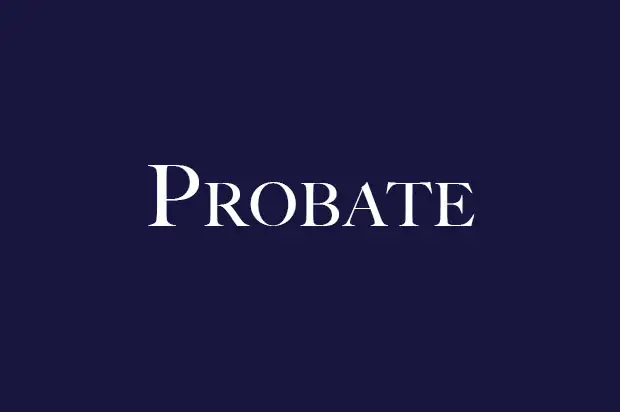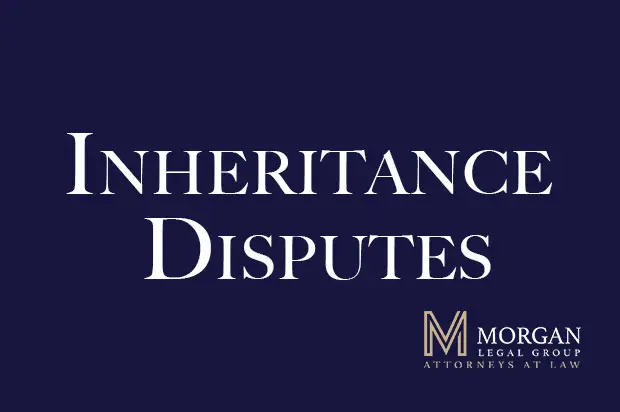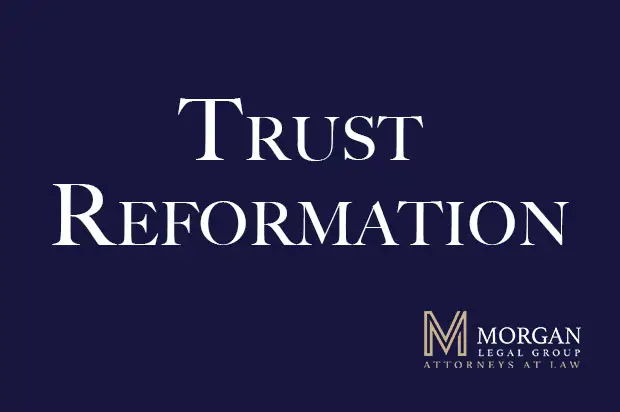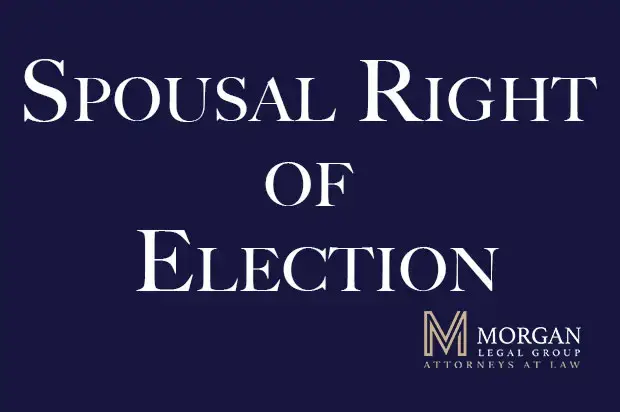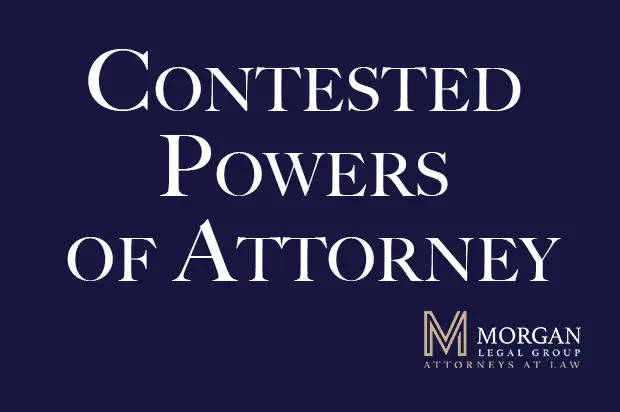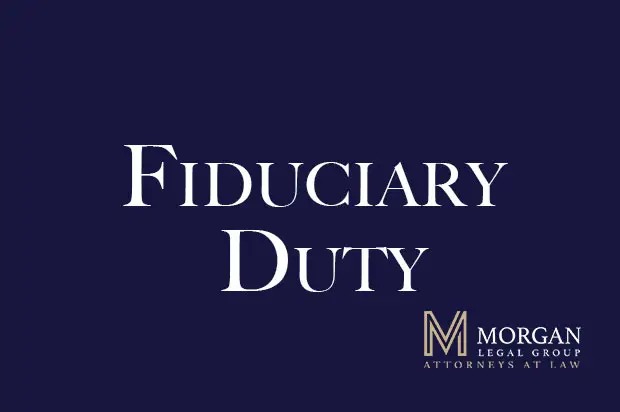Expert’s Guide: Estate Planning in New York – Secure Your Future
Welcome to Morgan Legal Group P.C., your dedicated legal resource for estate planning in New York.
Why Estate Planning is Crucial in New York
Estate planning is a proactive and thoughtful process. Estate planning organizes your financial and personal affairs, reflecting your wishes and providing for your loved ones after your death. It involves key decisions to ensure your assets are distributed as intended, and that your family is cared for according to your desires. Without a solid plan, New York law dictates how your assets are distributed, potentially conflicting with your wishes.
In New York’s dynamic environment, estate planning is even more vital. New York’s unique laws and high cost of living necessitate careful planning to protect your wealth and ensure your family’s financial security. Furthermore, a well-structured plan minimizes potential disputes among family members, preserving relationships and legacies. Therefore, do not leave your legacy to chance.
The Consequences of Not Having an Estate Plan in NY
Failing to plan can have severe consequences. Without a will or trust, the New York Surrogate’s Court will determine how your assets are distributed according to state intestacy laws. This legal process might not align with your wishes and could lead to unnecessary delays, expenses, and family conflict. Furthermore, it also forgoes opportunities to minimize estate taxes. Therefore, taking the proper action ensures a more favorable outcome.
- Assets are distributed according to state law, not your wishes
- Potential for family disputes and legal battles
- Unnecessary delays and expenses through the probate process
- Missed opportunities to minimize estate taxes
- Increased stress and burden on your loved ones during a difficult time
Key Elements of a New York Estate Plan:
Creating a comprehensive estate plan is one of the most important steps you can take to protect your assets, provide for your loved ones, and ensure your wishes are honored. While the specific details of an estate plan will vary depending on your individual circumstances, there are several key elements that should be included in almost every plan. Here at Morgan Legal Group P.C., serving New York City and beyond, we cover all of these crucial aspects to provide our clients with peace of mind. This comprehensive guide will explore the key elements of a New York estate plan, providing valuable insights into their purpose, benefits, and how they work together to secure your legacy. A well-constructed estate plan is a gift to yourself and your loved ones, ensuring their future financial security and well-being. It is important to be proactive about these key actions to benefit the future.
Wills: Directing the Distribution of Your Assets
A Last Will and Testament is a fundamental estate planning document that outlines how you want your assets and property distributed after your death. It allows you to designate beneficiaries who will inherit your property and specify the assets they will receive. In your will, you can also nominate an executor to manage your estate and carry out your wishes. The executor is responsible for:
- Gathering your assets
- Paying your debts and taxes
- Distributing your assets to your beneficiaries
A well-drafted will provides clear guidance for your loved ones and ensures your wishes are respected.
If you have minor children, your will can also designate guardians to care for them in the event of your death. This is a crucial decision that should be made carefully, considering the child’s best interests and the guardian’s values and abilities. The guardian will be responsible for raising your children and making important decisions about their lives. This element offers security to your children.
Trusts: Managing Assets and Avoiding Probate
Trusts offer a flexible and effective way to manage and distribute your assets, often allowing you to avoid probate and maintain privacy. Trusts are valuable tools for asset protection and long-term planning. With a trust, you transfer ownership of your assets to a trustee, who manages those assets for the benefit of one or more beneficiaries. Trusts can be created during your lifetime (living trusts) or after your death through your will (testamentary trusts). Trusts offer greater control and flexibility compared to wills.
Common types of trusts used in estate planning include:
- Revocable Living Trusts: These trusts allow you to retain control over your assets during your lifetime and can be modified or revoked at any time.
- Irrevocable Trusts: These trusts offer greater asset protection and tax benefits but cannot be easily changed or terminated once they are established.
- Special Needs Trusts: These trusts are designed to provide for individuals with disabilities without jeopardizing their eligibility for government benefits.
The right type of trust depends on your individual circumstances and goals. Expert guidance is essential for selecting the appropriate trust.
Power of Attorney: Appointing a Financial Decision-Maker
A Power of Attorney is a vital legal document that grants someone the authority to make financial and legal decisions on your behalf if you become incapacitated. This ensures your financial matters are handled responsibly, even if you are unable to do so yourself. The person you appoint is known as your agent or attorney-in-fact. The best choice is always going to be someone you trust. A durable power of attorney remains in effect even if you become incapacitated.
With a power of attorney, your agent can:
- Pay your bills
- Manage your bank accounts and investments
- File your taxes
- Make legal decisions on your behalf
This ensures your financial affairs are handled smoothly and efficiently. A power of attorney can prevent the need for a costly and time-consuming guardianship proceeding.
Healthcare Proxy: Designating a Medical Decision-Maker
A Healthcare Proxy designates a person to make medical decisions for you if you cannot do so yourself. This is a crucial document for ensuring your healthcare preferences are honored. The person you appoint is known as your healthcare agent. They will have the authority to consent to or refuse medical treatment on your behalf, based on your wishes and best interests. A healthcare proxy ensures your voice is heard when you’re unable to speak for yourself. It provides comfort and protection.
It’s important to discuss your healthcare wishes with your chosen agent so they understand your values and preferences. Your agent can then make informed decisions that align with your beliefs. Open communication is essential for effective healthcare planning. Share your values and preferences.
Living Will: Expressing Your Healthcare Preferences
A Living Will, also known as an advance directive, outlines your preferences for medical treatment in case you cannot communicate your wishes. These instructions can include end-of-life care decisions, ensuring your values are respected even when you are unable to express them. A living will allows you to specify the types of medical treatment you want to receive or refuse, such as life-sustaining treatment, artificial nutrition and hydration, and pain management. Clarity is key to ensuring your preferences are honored.
A living will complement a healthcare proxy by providing specific guidance to your healthcare agent and medical providers. Together, these documents ensure your healthcare wishes are respected.
Beneficiary Designations: Ensuring Proper Asset Transfer
Ensuring your retirement accounts, life insurance policies, and other assets have updated beneficiary designations is a vital aspect of estate planning. This process ensures these assets are transferred directly to your intended recipients, often bypassing probate. Beneficiary designations take precedence over your will, so it’s crucial to keep them up-to-date. Neglecting these designations can lead to unintended consequences and family disputes. Be sure to regularly review and update all designations to reflect your current wishes.
Common assets with beneficiary designations include:
- Retirement accounts (401(k)s, IRAs)
- Life insurance policies
- Annuities
- Brokerage accounts (Transfer on Death or TOD)
Make sure these are reviewed every three to five years with your attorney.
Estate Tax Planning: Minimizing Tax Liabilities and Ensuring Legacy Security
Estate Tax Planning involves strategies to minimize estate taxes and maximize the assets passed on to your beneficiaries. Understanding New York’s estate tax laws is essential for preserving your wealth for future generations. Estate taxes can significantly reduce the value of your estate, so it’s important to implement effective tax planning strategies. An experienced attorney can help you navigate these complex rules.
Key estate tax planning strategies include:
- Making lifetime gifts
- Establishing irrevocable trusts
- Utilizing the annual gift tax exclusion
- Creating a Qualified Personal Residence Trust (QPRT)
Careful planning can help minimize your tax liability and maximize the benefits for your heirs. Every strategy can provide different results depending on the case involved.
New York Estate Planning: What to Consider Beyond Federal Law
New York has specific laws that impact estate planning, such as estate tax thresholds, probate procedures, and spousal rights. To create an effective plan that protects your assets and honors your wishes, it’s important to consider these laws. Working with an attorney familiar with New York law is essential for ensuring your plan is compliant and effective. State law adds another layer of complexity to the planning process.
Key considerations for New York estate planning include:
- New York’s estate tax threshold
- The elective share rights of a surviving spouse
- The requirements for a valid will
- The procedures for probate administration
Expert guidance ensures your plan is tailored to New York law.
New York Probate Process: What to Expect
The probate process in New York involves validating a will and administering the estate through the Surrogate’s Court. This legal process can be time-consuming and costly, potentially delaying the distribution of assets to your heirs. The probate process can involve court fees, attorney fees, and other expenses. Many individuals seek to minimize or avoid probate altogether. Fortunately, a variety of methods exist to avoid the need for probate court.
Common probate avoidance strategies include:
- Creating a revocable living trust
- Using transfer-on-death (TOD) designations
- Owning property jointly with right of survivorship
These strategies can streamline the transfer of assets to your loved ones.
New York Estate Tax: Understanding the Thresholds and Rates
New York imposes an estate tax on estates exceeding a certain threshold. In 2024, this threshold is \$6.94 million. If your estate exceeds this threshold, the portion of your estate above the threshold is subject to New York estate tax. This tax can significantly reduce the amount of wealth you pass on to your heirs. Planning ahead makes all the difference.
The New York estate tax rates range from 3.06% to 16%, depending on the size of your estate. Effective estate tax planning strategies, such as creating trusts and making lifetime gifts, can help minimize your estate tax liability and ensure more of your wealth passes to your beneficiaries. Tax planning can increase the amount of your assets.
Guardianship for Minor Children: Ensuring Their Care and Well-being
If you have minor children, your estate plan should designate a guardian to care for them in the event of your death. This is one of the most important decisions you will make as a parent. Carefully consider the individuals you deem to be guardians and discuss your wishes with them. The guardian will be responsible for raising your children and making important decisions about their lives. This designation ensures your children are raised according to your values and preferences.
Important factors to consider when choosing a guardian include:
- Their relationship with your children
- Their values and beliefs
- Their financial stability
- Their ability to provide a loving and supportive home environment
The child’s well-being should always be the paramount concern.
Elder Law Considerations: Planning for Long-Term Care
For seniors, estate planning often overlaps with elder law concerns. Proper planning for long-term care and Medicaid eligibility is an important consideration. Long-term care costs can be substantial, and Medicaid can help cover these costs if you meet certain eligibility requirements. However, Medicaid has income and asset limitations. Planning ahead is essential for protecting your assets and ensuring access to necessary care. NYC Elder law can be of assistance.
Strategies for protecting your assets and qualifying for Medicaid include:
- Creating a Medicaid Asset Protection Trust
- Purchasing long-term care insurance
- Making lifetime gifts
Consult with an elder law attorney to determine the best approach for your situation. Planning helps ensure both care and security.
Protecting Your Legacy with Morgan Legal Group
Creating a comprehensive estate plan is an investment in your future and the well-being of your loved ones. At Morgan Legal Group, we are dedicated to helping individuals and families in New York create effective estate plans that meet their specific needs and goals. Our experienced attorneys can guide you through every step of the process, from drafting your will to establishing trusts to planning for long-term care. Contact us today to schedule a consultation and learn more about how we can help you protect your legacy. You can see our Google My Business using this link. Take control of your future today.
New York Estate Planning: What to Consider
New York has specific laws that impact estate planning. To create an effective plan that protects your assets and honors your wishes, it’s important to consider these laws. From probate procedures to estate tax regulations, understanding the local legal landscape is essential.
New York Probate Process
The probate process in New York involves validating a will and administering the estate through the Surrogate’s Court. This legal process can be time-consuming and costly, potentially delaying the distribution of assets to your heirs. Fortunately, a variety of methods exist to avoid the need for probate court.
New York Estate Tax
New York imposes an estate tax on estates exceeding a certain threshold. In 2024, this threshold is \$6.94 million. Effective estate tax planning strategies, such as creating trusts and making lifetime gifts, can help minimize your estate tax liability. This process is useful, as it allows for you to pass more of your wealth to your heirs.
Guardianship for Minor Children
If you have minor children, your estate plan should designate a guardian to care for them in the event of your death. You must carefully consider the individuals you deem to be guardian. This designation ensures your children are raised according to your values and preferences.
Elder Law Considerations
For seniors, estate planning often overlaps with elder law concerns. As such, proper planning for long-term care and Medicaid eligibility is an important consideration. These provisions protect your assets. This planning ensures access to necessary care while preserving your family’s financial security.
Trusts and Estate Planning in New York:
When it comes to estate planning in New York, many people focus solely on creating a will. While a will is a fundamental document, it may not be sufficient to address all of your needs and goals. Trusts are vital components of a comprehensive estate plan, offering a wide range of benefits that wills simply cannot provide. These benefits range from increased control over asset distribution to significant tax advantages and asset protection. Trusts provide versatility and control over how and when your assets are distributed. Working with a skilled New York estate planning attorney is important to navigate the complexities of trust law and estate planning. At Morgan Legal Group, serving New York City and beyond, we help individuals and families create customized estate plans that incorporate trusts to achieve their specific objectives. This comprehensive guide will explore the various types of trusts available in New York, their benefits, and how they can be integrated into your estate plan to secure your legacy. It also requires the assistance of estate planning attorneys.
The Benefits of Using Trusts in Estate Planning
Trusts offer several key advantages over wills, making them an attractive option for many individuals in New York:
- Probate Avoidance: Assets held in a trust pass directly to your beneficiaries without going through probate, saving time, money, and maintaining privacy.
- Control Over Asset Distribution: Trusts allow you to specify when and how your beneficiaries will receive their inheritance, providing greater control over asset management.
- Asset Protection: Certain types of trusts can protect your assets from creditors, lawsuits, and even potential divorce settlements.
- Tax Planning: Trusts can be used to minimize estate taxes, gift taxes, and income taxes.
- Planning for Incapacity: Trusts can provide a mechanism for managing your assets if you become incapacitated.
These advantages make trusts a valuable tool for individuals with complex assets, specific estate planning goals, or concerns about probate, taxes, or asset protection. Trusts can adapt for individual planning options.
Revocable Living Trusts: Flexibility and Control During Your Lifetime
A Revocable Living Trust allows you to maintain control over your assets during your lifetime. You can modify or terminate the trust as needed, giving you complete flexibility. You can also serve as the trustee, managing the trust assets and making distributions to yourself. This control is highly desirable for many individuals.
Upon your death, the assets in the trust bypass probate and are distributed to your beneficiaries according to your instructions. This streamlined process can save time and money and maintain privacy for your family. Revocable Living Trusts are a popular choice for those seeking control and convenience. This is especially effective for complex estates.
Irrevocable Trusts: Asset Protection and Tax Benefits
Irrevocable Trusts offer asset protection and tax benefits that revocable trusts cannot provide. Once established, they cannot be easily modified or terminated. Assets transferred into an irrevocable trust are generally protected from creditors and lawsuits, offering a layer of financial security. Irrevocable trusts can also be used to minimize estate taxes, gift taxes, and income taxes. They serve to limit tax burdens. This helps maximize the amount of assets that pass to your loved ones.
Common types of irrevocable trusts include:
- Irrevocable Life Insurance Trusts (ILITs)
- Grantor Retained Annuity Trusts (GRATs)
- Qualified Personal Residence Trusts (QPRTs)
- Medicaid Asset Protection Trusts
Each type of trust is designed to achieve specific estate planning goals. They can assist in long-term goals. Expert guidance is essential for selecting the appropriate trust for your needs.
Special Needs Trusts: Providing for Loved Ones with Disabilities
A Special Needs Trust provides for a disabled loved one without jeopardizing their eligibility for government benefits, such as Medicaid and Supplemental Security Income (SSI). This type of trust ensures they receive the care and support they need without affecting their access to essential services. Special Needs Trusts are carefully structured to comply with Medicaid and SSI regulations, allowing the beneficiary to receive supplemental care and support without losing their government benefits. It serves as a safety net for a disabled loved one.
Special Needs Trusts can be used to pay for:
- Medical expenses not covered by insurance
- Therapy and rehabilitation services
- Education and training
- Recreation and entertainment
- Personal care items
These trusts ensure your loved one’s needs are met.
Charitable Trusts: Integrating Philanthropy with Estate Planning
Charitable Trusts allow you to support your favorite causes while also reducing your estate taxes. These trusts can be structured to provide income to a charity for a set period, with the remainder of the assets passing to your beneficiaries later. Charitable trusts combine philanthropic goals with sound financial planning. They allow you to make a lasting impact on the organizations you care about.
Common types of charitable trusts include:
- Charitable Remainder Trusts (CRTs)
- Charitable Lead Trusts (CLTs)
CRTs provide income to you or your beneficiaries, while CLTs provide income to charity. Each option offers different benefits.
The Importance of a Properly Drafted Trust Agreement
The trust agreement is the foundation of any trust, outlining the terms of the trust, the powers and responsibilities of the trustee, and the rights of the beneficiaries. It’s crucial to have a properly drafted trust agreement that accurately reflects your wishes and complies with New York law. A poorly drafted trust agreement can lead to unintended consequences, family disputes, and even legal challenges. Clear and precise language is essential to avoid ambiguity.
Key provisions to include in a trust agreement:
- The name of the trustee and successor trustees
- The powers and responsibilities of the trustee
- The names of the beneficiaries
- How and when distributions will be made to the beneficiaries
- The terms for terminating the trust
Expert legal guidance ensures your trust is properly structured.
Choosing the Right Trustee: Responsibilities and Considerations
The trustee plays a crucial role in the administration of a trust. The trustee is responsible for managing the trust assets, making distributions to beneficiaries, and ensuring the trust complies with all applicable laws and regulations. The trustee has a fiduciary duty to act in the best interests of the beneficiaries and must avoid any conflicts of interest. The trustee’s honesty is an important role to have in this situation.
Key considerations when choosing a trustee include:
- Trustworthiness and integrity
- Financial acumen
- Availability and willingness to serve
- Impartiality
- Experience managing trusts
Selecting a qualified trustee is essential for the success of your trust. A well managed trust is one that is looked over constantly.
Funding Your Trust: Transferring Assets Properly
A trust is only effective if it is properly funded. This means that you must transfer ownership of your assets to the trust. This can involve retitling real estate, changing the ownership of bank accounts and investments, and assigning beneficiary designations to the trust. Failing to properly fund your trust can render it ineffective. It’s important to transfer assets to the trust name.
Common assets to transfer to a trust include:
- Real estate
- Bank accounts
- Investments
- Life insurance policies
- Business interests
Ensure all assets are properly titled in the name of the trust. The team at Morgan Legal Group can aid in this step.
The Relationship Between Trusts and Wills in Estate Planning
While trusts offer significant advantages, they do not eliminate the need for a will. A will serves as a backup plan, directing the distribution of any assets that are not held in the trust at the time of your death. A “pour-over” will can be used to transfer any remaining assets into the trust after your death, ensuring all of your assets are ultimately distributed according to the terms of the trust agreement. Wills and trusts work together to create a comprehensive estate plan.
Both documents are essential for ensuring your wishes are respected and your loved ones are protected. Seek expert guidance to create a coordinated plan.
Estate Tax Planning Strategies Using Trusts
Trusts can be powerful tools for minimizing estate taxes and maximizing the assets that pass to your beneficiaries. By transferring assets to certain types of trusts, you can remove them from your taxable estate, potentially reducing estate taxes.
Common estate tax planning strategies using trusts include:
- Establishing an Irrevocable Life Insurance Trust (ILIT)
- Creating a Grantor Retained Annuity Trust (GRAT)
- Utilizing a Qualified Personal Residence Trust (QPRT)
Careful planning can significantly reduce your estate tax liability. This helps you secure wealth for loved ones.
Asset Protection Strategies Using Trusts
Trusts can also be used to protect your assets from creditors, lawsuits, and other potential claims. By transferring assets to an irrevocable trust, you remove them from your personal estate, making them less vulnerable to creditors. Certain types of trusts, such as spendthrift trusts, can also protect assets from being accessed by beneficiaries’ creditors. Consult with an attorney at Morgan Legal Group to understand how best to help.
Irrevocable trusts offer the greatest asset protection benefits. They safeguard your assets from potential threats.
Working with an Experienced Estate Planning Attorney in New York
Creating and managing trusts can be complex, and it’s important to work with an experienced estate planning attorney who is knowledgeable about New York law and committed to providing personalized and effective legal services. An attorney can help you:
- Evaluate your estate planning needs
- Determine which types of trusts are right for you
- Draft trust agreements that accurately reflect your wishes
- Fund your trusts properly
- Provide ongoing guidance and support
Choosing the right attorney can make all the difference. Seek expert guidance to navigate these complex issues. With the help of an attorney, you can be sure that your trusts are properly structured and managed to achieve your goals.
Powers of Attorney and Healthcare Proxies: Planning for Incapacity
Planning for potential incapacity is just as important as planning for what happens after your death. Power of Attorney and Healthcare Proxy documents empower someone to make decisions on your behalf. The decisions can be financial, legal, or medical in nature if you become unable to do so yourself. These documents are vital.
Durable Power of Attorney
A Durable Power of Attorney allows you to appoint someone you trust to manage your financial and legal affairs. This document will remain effective even if you become incapacitated. It can cover a range of powers. Those can include paying bills, managing investments, and making property transactions.
Healthcare Proxy
A Healthcare Proxy designates someone to make medical decisions for you if you are unable to communicate your wishes. You can discuss your healthcare preferences with your proxy. This helps to ensure they make informed decisions that align with your values.
Living Will (Advance Directive)
A Living Will, or advance directive, outlines your preferences for medical treatment. These preferences are especially crucial regarding end-of-life care. The document is enacted if you cannot communicate your wishes. A Living Will ensures your medical care aligns with your values.
Strategies for Minimizing New York Estate Taxes
Minimizing estate taxes is a key goal for many New Yorkers. The right planning can help reduce the tax burden. As a result, you can maximize the assets passed to your loved ones. Here are several strategies to consider.
Gifting Strategies
Making lifetime gifts can reduce the size of your taxable estate. Under current federal law, you can gift up to \$18,000 per person per year without incurring gift tax. Furthermore, New York does not have a gift tax, making lifetime gifting an attractive strategy. The federal threshold often changes.
Irrevocable Life Insurance Trusts (ILITs)
An Irrevocable Life Insurance Trust (ILIT) can remove life insurance proceeds from your taxable estate. The ILIT owns your life insurance policy. Upon your death, the proceeds are paid to your beneficiaries outside of your estate, free from estate taxes.
Qualified Personal Residence Trusts (QPRTs)
A Qualified Personal Residence Trust (QPRT) allows you to transfer your home to your beneficiaries while continuing to live in it for a set period. This strategy can remove the value of your home, and any future appreciation, from your taxable estate. There is a caveat. If you live longer than the set period, the asset may be included.
Charitable Giving
Making charitable donations can reduce your taxable estate. You can donate directly to qualified charities or establish a charitable trust. Both can reduce your tax burden while supporting causes you care about.
Working with Morgan Legal Group: Personalized Estate Planning in NYC
Navigating the complexities of estate planning in New York requires expertise and personalized attention. At Morgan Legal Group P.C., our experienced attorneys are committed to providing tailored solutions. Our goal is to meet your unique needs and objectives. We work with you to build a long-lasting plan.
Personalized Consultation and Assessment
We begin with a thorough consultation. We assess your financial situation, family dynamics, and estate planning goals. We’ll answer your questions and address your concerns. We’ll then develop a customized plan to meet your individual circumstances.
Document Drafting and Review
Our skilled attorneys will draft and review all necessary legal documents. We strive to accurately reflect your wishes. We also ensure compliance with New York laws. These documents can include wills, trusts, powers of attorney, and healthcare proxies.
Probate and Estate Administration Assistance
We assist executors and administrators in navigating the often complex probate process. We handle estate administration tasks. These tasks can include asset valuation, debt payment, and asset distribution to beneficiaries.
Estate Tax Planning Expertise
We offer expert estate tax planning advice. We explore strategies to minimize your estate tax liability. This helps preserve more of your assets for your loved ones. Our team offers comprehensive planning and expertise.
Ongoing Review and Updates
Estate plans should be reviewed and updated periodically. The need arises when there are changes to your circumstances or changes in the law. We will help you keep your plan current. We will ensure that it continues to meet your needs.
Why Choose Morgan Legal Group P.C. for Your Estate Planning Needs?
Choosing the right attorney for your estate planning is a crucial decision. It’s important to select a law firm with the experience, expertise, and dedication to provide you with the best possible service. Here are several reasons why Morgan Legal Group P.C. is the ideal choice for your estate planning needs.
- Extensive Experience: We have over 30 years of experience practicing estate planning law in New York. We offer valuable insights and guidance.
- Personalized Attention: We take the time to understand your unique circumstances and goals. We’ll tailor your plan to meet your specific needs.
- Comprehensive Services: We offer a full range of estate planning services. Our services extend to wills, trusts, powers of attorney, and more. This includes probate and estate administration.
- Commitment to Excellence: We are committed to providing our clients with the highest quality legal representation. We strive for excellence in everything we do.
- Local Expertise: We are deeply familiar with New York’s estate planning laws and regulations. We can provide you with the most accurate and up-to-date advice.
Do not leave your legacy to chance. Instead, choose a law firm that will protect your assets. Also, choose a firm that will ensure your family’s well-being. Contact Morgan Legal Group P.C. today! Reach out today! Our skilled team is prepared to assist. To plan with us today, Schedule an Appointment!
Visit Morgan Legal Group P.C. to learn how we can help you and your family secure your future. Check out our options for Wills and trusts in Brooklyn
For additional information on estate planning, please visit the American Bar Association’s Estate Planning Resources. To explore our practice, and expertise, learn more about Russel Morgan, Esq. We also handle probate cases in Brooklyn, as described here: Probate Information. For seniors, estate planning often overlaps with elder law concerns. As such, learn more about elder law in NYC.








